About OpenDSA: Open Source Interactive Computer Science Instruction
[Click on any of the images to try things out!]
Welcome to the homepage for the OpenDSA Active-eBook Project. We have created infrastructure and materials to support courses in a wide variety of Computer Science-related topics such as Data Structures and Algorithms (DSA), Formal Languages, Finite Automata, and Programming Languages.
OpenDSA materials include many visualizations and interactive exercises. Our philosophy is that students learn this material best when they engage the material and then practice it until they have demonstrated their proficiency. This page shows a sampling of screenshots (if you click on a screenshot, you will be taken to the actual artifact). In the same way, a given visualization or exercise could be incorporated individually into an instructor's own web pages.
But these visualizations and exercises were designed to be integrated with explanatory tutorials, with the basic unit of instruction being a "module". A module is a single HTML page, corresponding to a single section in a textbook, or a single topic that might be part of a lecture. Modules are collected together to form an OpenDSA "book instance". Book instances can be integrated into courses in the Canvas LMS.
- Here is an example book instance for the data structures component of a typical CS2-level course.
- Here is an example book instance for a typical Data Structures and Algorithms course taken after a traditional CS2 course. (that we refer to as "CS3").
- Here is a book instance that shows all of the exisiting modules, including ones that are not fully ready for classroom use.
For instructors, we have support for making assignments and tracking your students' progress through the material. Materials are created using the OpenDSA authoring and configuration tools.
If you would like to contribute to our open-source project, please contact us: opendsa@cs.vt.edu
OpenDSA materials are continuing to increase and improve. Already, our project includes:
- Hundreds of instructional modules, where each module is the equivalent to one topic, such as one sorting algorithm, corresponding to a couple of pages in a standard textbook. Each module is of textbook quality. An "eTextbook" can be created from any collection of modules, as defined by an editable configuration file, making it easy for an instructor to create a custom textbook for a class.
- Every algorithm or data structure is illustrated by an interactive algorithm visualization. Students could enter their own test cases to see how the algorithm or data structure works on that input, and they can control the pacing of the visualization.
- Every module contains interactive assessment activities that give students immediate feedback on their proficiency with the material. There are many hundreds of exercises.
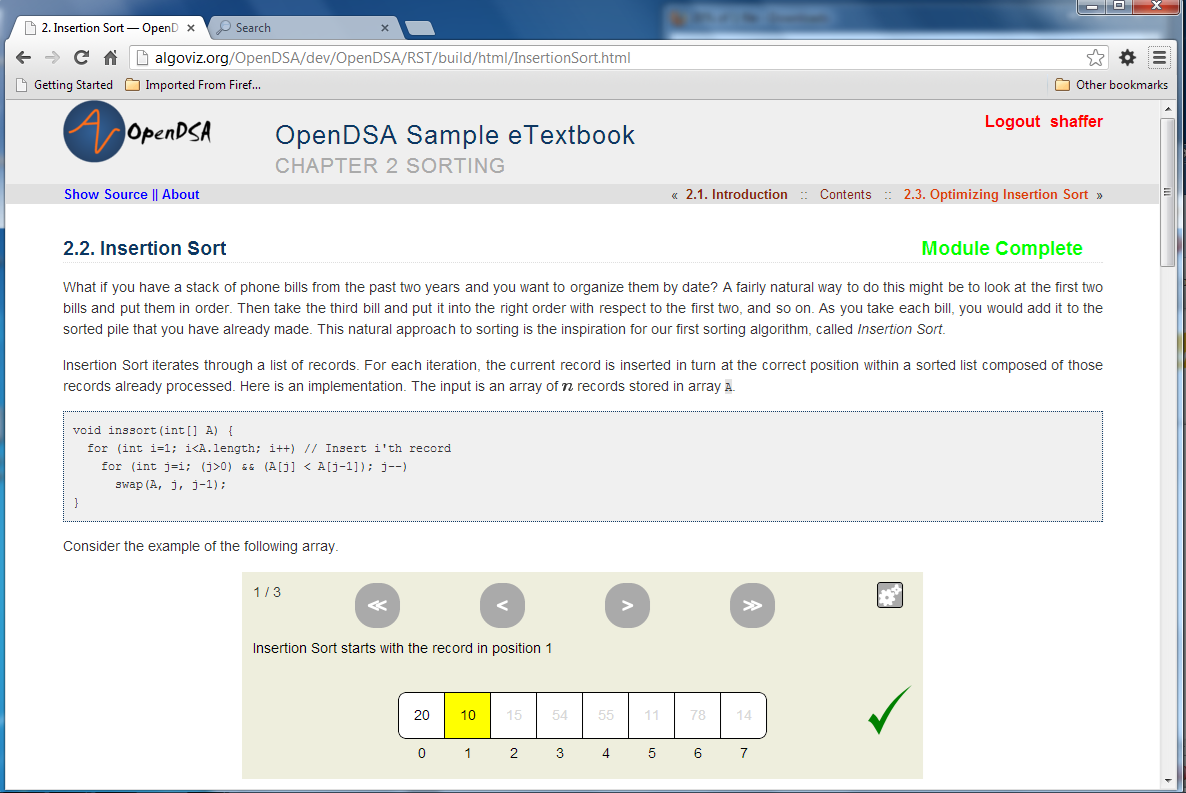
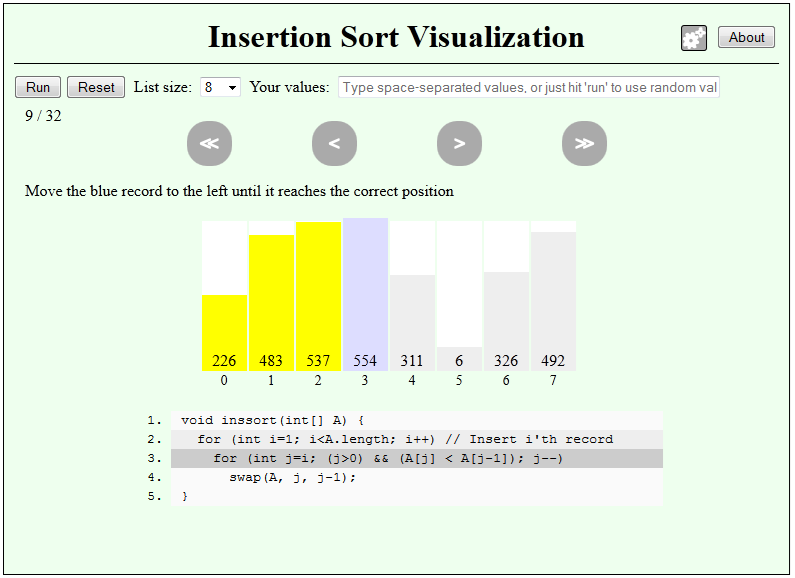
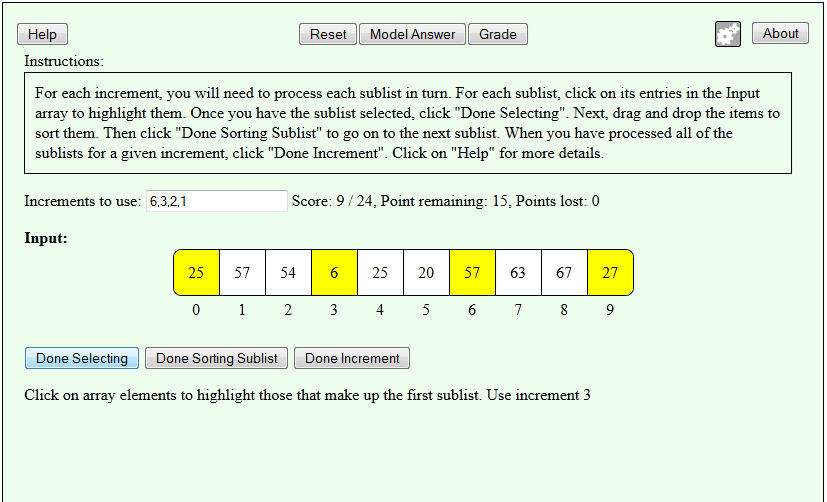
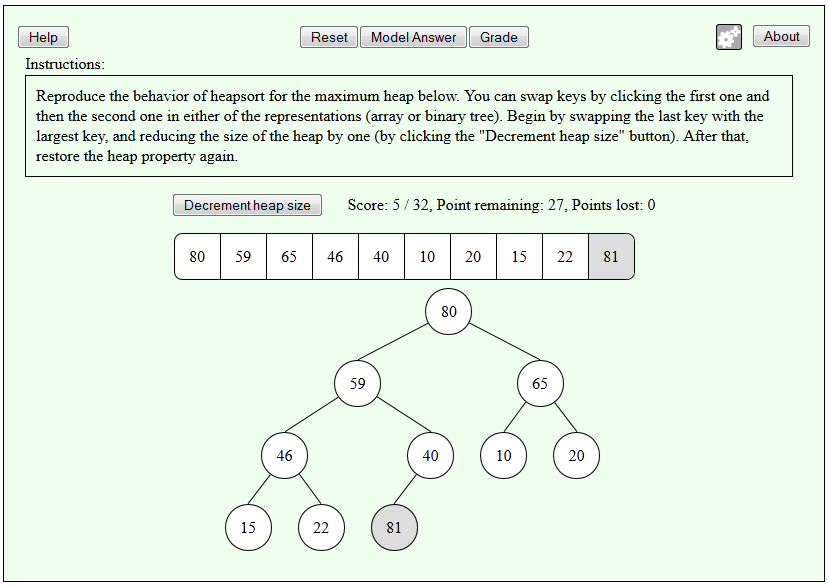
We accomplish this through an open-source, creative commons environment. "Open Source" means that not only can anyone use the materials, they can also access the source code that generates the materials. "Creative Commons" means that anyone has permission to modify or remix the materials for their own purposes. You as an instructor (or even a student or professional who wants to self study) will be able to pick and choose from the selection of modules and exercises, automatically generating a custom textbook that contains exactly the topics you want. Since all materials are open source, you can rewrite any part if you don't like what is already there. Infrastructure will be included that lets you register students and then track their progress through the modules and exercises.
A major complaint of students in DSA classes is that they do not get enough practice problems, or sufficient other means of testing their proficiency. One of the most important aspects of our vision is a rich set of exercises to ensure that the student understands the material as he/she progresses through the book. Our modules will contain a mix of content, visualizations, and exercises. We make extensive use of the Khan Academy exercise infrastructure to build interactive exercises.
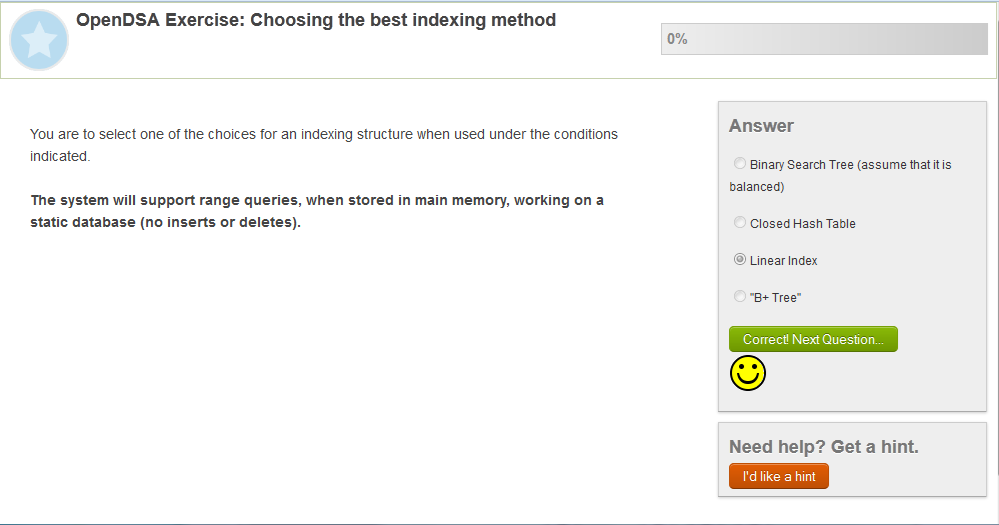
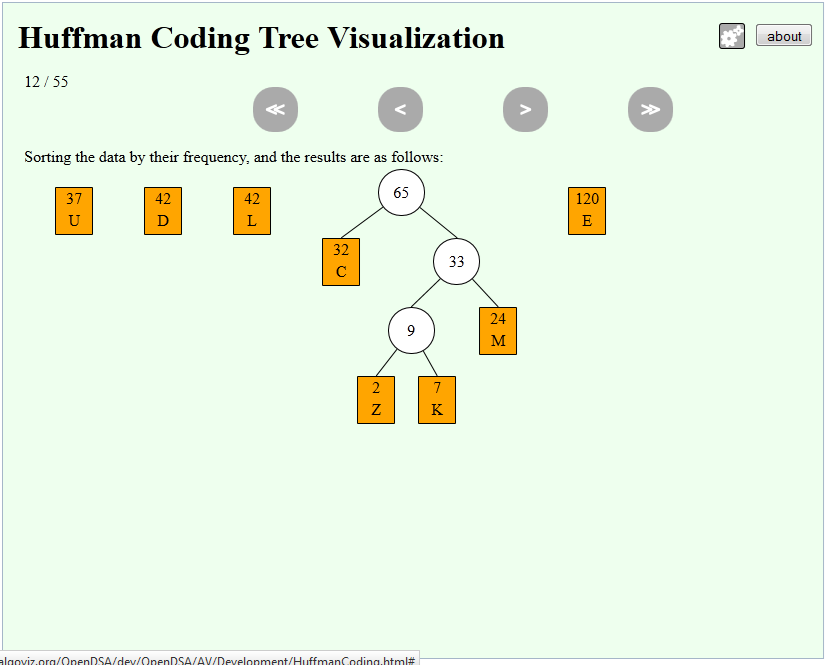
For more details on our project infrastructure, status, and issues, see our GitHub Organization and our main development repository. Contact us at opendsa@cs.vt.edu if you would like to become involved.
If you are a new developer on the project, see the OpenDSA developer's Getting Started Guide. Further documentation for the OpenDSA infrastructure is available here.
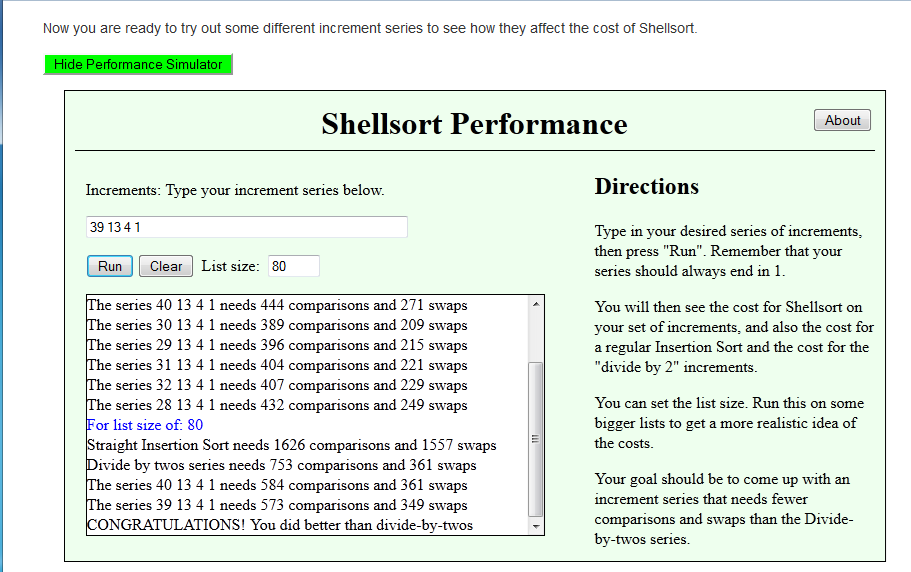
See here for a list of papers and presentations about the OpenDSA project.